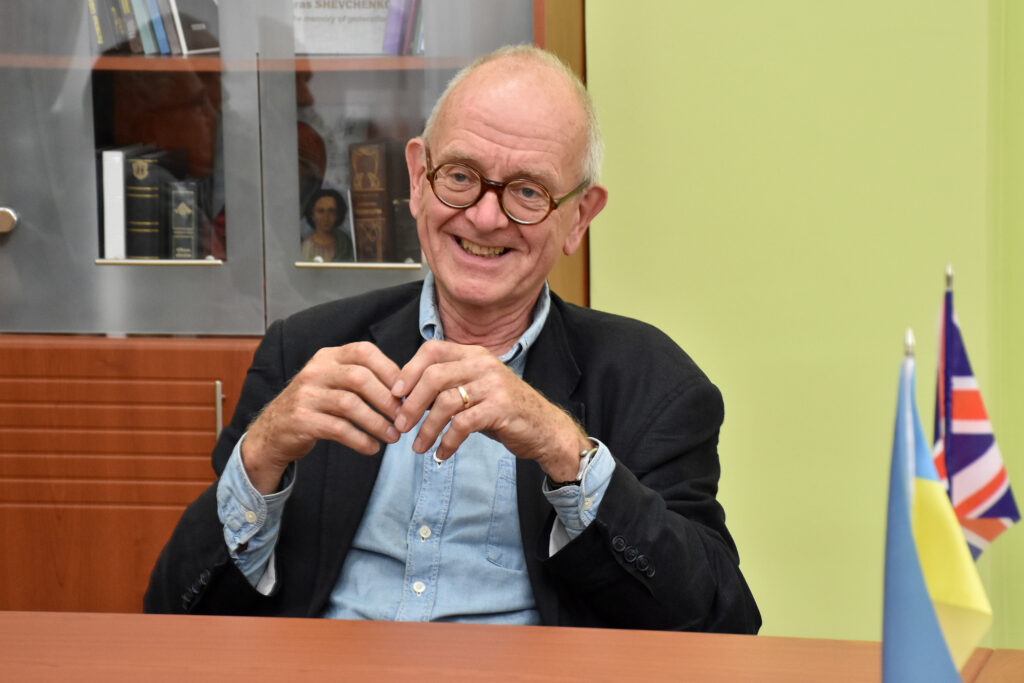Review: Do No Harm, a Neurosurgeon Tells Stories of Life, Death and Surgery
An honest account of a modern day neurosurgeon. In a fashion unlike any other medical book, Marsh surveys his most challenging cases and failures.
“Life without hope is hopelessly difficult but at the end hope can so easily make fools of us all.”
– HENRY MARSH, DO NO HARM: STORIES OF LIFE, DEATH AND BRAIN SURGERY
Very few branches of medicine have captured the imagination of the masses as neurosurgery has. Every single day, doctors see hundreds of people at their most vulnerable. However, in neurosurgery, patients are in a state beyond what can be described as ‘vulnerable’. The very substance of their being, memories, dreams, hopes, and personalities, are offered up at the altar of the neurosurgeon for inspection and, many times, permanent alteration. This grim awareness permeates every page of Do No Harm by Henry Marsh. (Read an excerpt)

Photo by Mykola Vasylechko. Світлина Миколи Василечка
A Summary of One’s Shortcomings
In a fashion unlike any other medical book, Marsh surveys his most challenging cases and failures. The ones that would be called disasters by the uninformed reader, but to any doctor, are the inescapable reality of modern medicine. The cases where despite our best intentions and efforts, there is surprisingly little we can do for our patients.
Dr Henry Marsh, a senior neurosurgeon at St. George’s Hospital, London, has an acerbic wit and a sarcastic self-awareness that helps cut through the moments when his pompousness gets the better of him. He pioneered the technique of Awake Craniotomy, a procedure wherein the patient lies awake with complete control of their limbs when the surgeon operates within a hair’s breadth of a brain lesion, thus allowing for complete resection and greater chances of cure. It would make one expect ‘Do No Harm’ to be a self-congratulatory treatise. It is, however, anything but that.
With every chapter, he chronicles the story of a patient and looks beyond their diagnosis to describe them in vivid detail, their mannerisms, fears and little quirks. With every turning page and every complication or cure, we feel as though it is the story of someone we care for deeply, for this is the same emotion that he feels for his patients.
The Old and New
It is not all ‘doom and gloom’, though, a phrase one of his orthopaedic colleagues used to describe neurosurgery. Marsh is also hilarious in a bone-dry manner. Much like a slightly curmudgeonly and cranky but ultimately loveable uncle.
He chafes against the directives of a new and shiny NHS trust with lofty, noble, egalitarian values, which are all great in theory but rather painful when they end up forcing him to share his surgeon’s lounge with colleagues from bariatric surgery. And the new rules forbid any doctor from sitting on patients’ beds and banned ties to minimise infections.
These moments hilariously describe the very real tribulations of senior clinicians in a rapidly changing medical world. Despite everything being ‘value-driven’ and ‘patient-centric’, the patient is seldom the central factor.
Charity, Craniotomy, Celebrity
A sizable portion of the book is dedicated to Marsh’s charitable work in Ukraine in the early and mid-2000s. A stark and often jarring deviation from the patient-centric protocols of the NHS. Corruption, a post-USSR haze, plagues the neurosurgical programme in Ukraine, and a lack of modern instruments sorely needed an expert to deal with the hundreds of patients in need of specialist care and intervention. Assuming that role turned Marsh into a minor celebrity in Ukraine and the UK, so much so that the BBC even made a documentary on his adventures aptly titled ‘The English Surgeon’.
In Ukraine, Marsh saw the exact opposite of what he would in London. The poorest of the poor travelled hundreds of kilometres to get his opinion on meningiomas the size of oranges, diffuse metastatic malignancies which were barely managed previously and occasionally, a perfectly complicated case, that with just enough luck and the courage to operate with second-hand instruments in a foreign nation would stun the local surgeons who would’ve offered the very same patient little more than tea and sympathy.
What is unique is the painfully detailed description of patients who came to him with operable, routine diagnoses that should have been smooth sailing but ended up getting complicated and relegating the patients to a fate worse than death. An unfortunate but terribly real side of neurosurgery that we all choose to remain unaware of. His honesty, the wholehearted and humbling acceptance of failure, is the most uncharacteristic of any medical book, let alone one written by a pioneering neurosurgeon.
A book with something for everyone, a behind-the-scenes look into the workings of the ward for the general public, a lesson in humility and the limitations of modern medicine for young doctors, Do No Harm is a must-read.
Featured Image Source:
- Photo by Mykola Vasylechko. Світлина Миколи Василечка
Buy it here:
Do No Harm: Stories of Life, Death, and Brain Surgery, by Henry Marsh, 320 pages